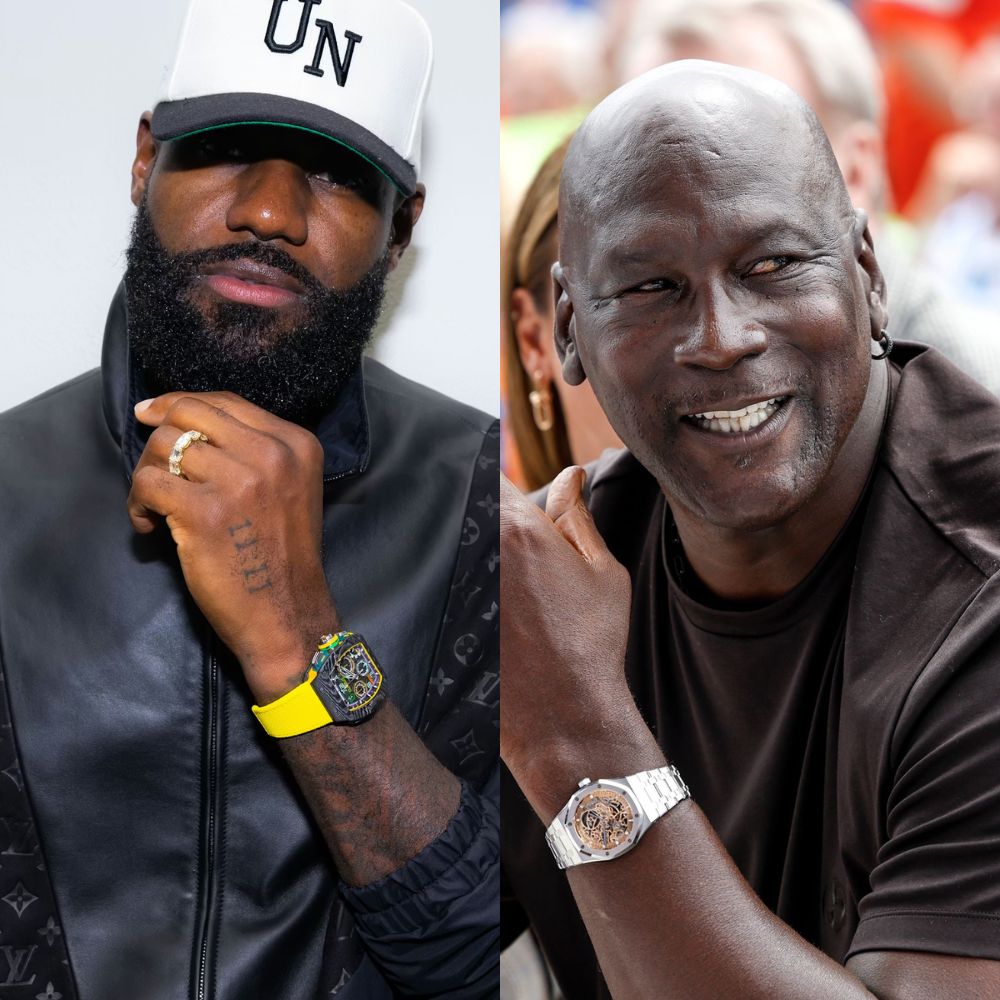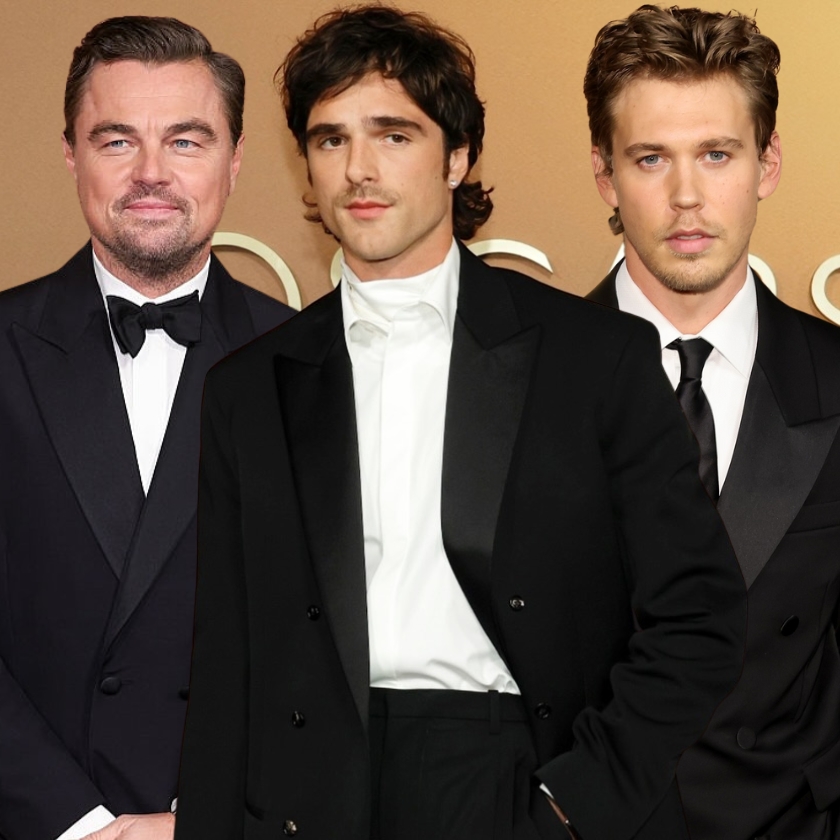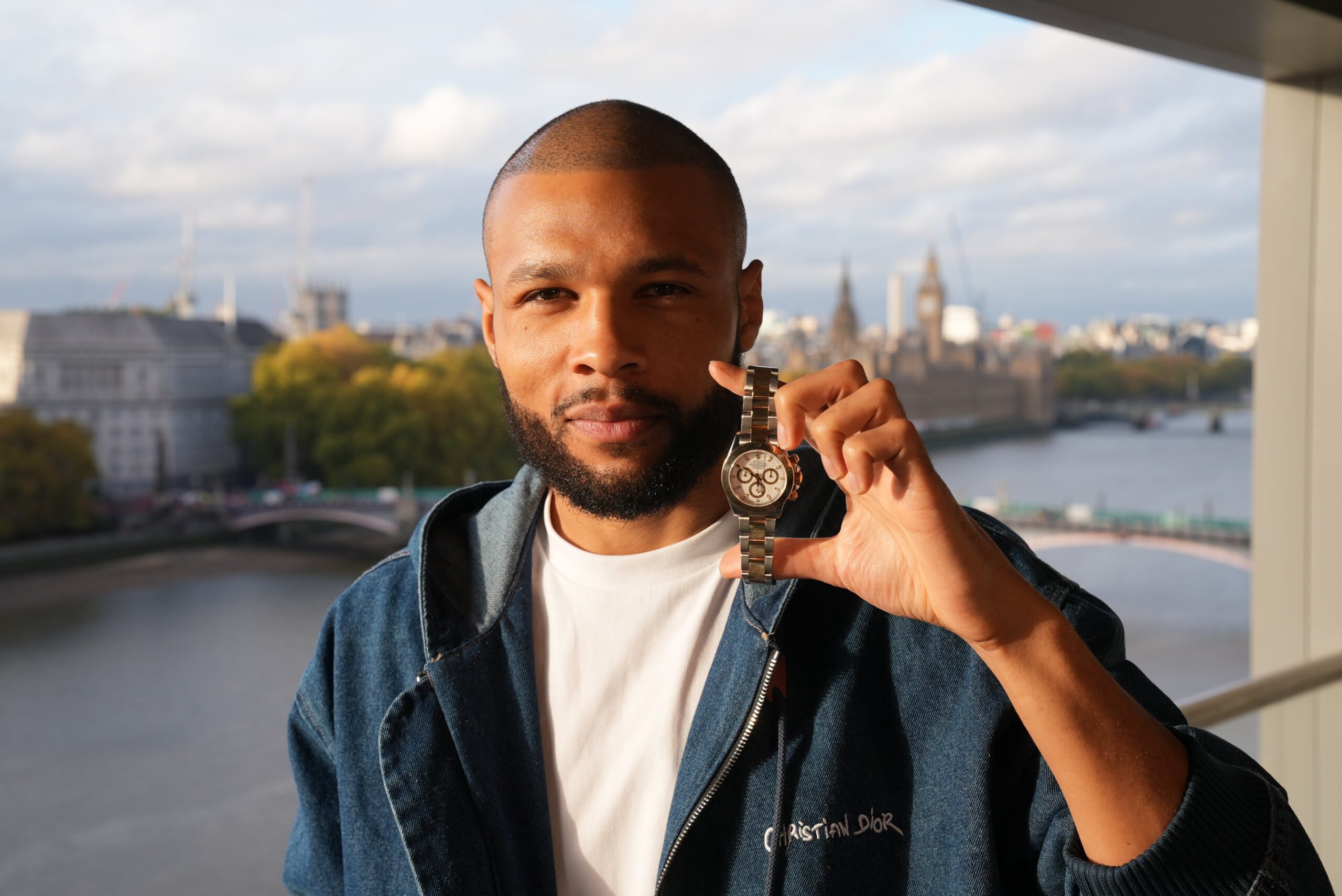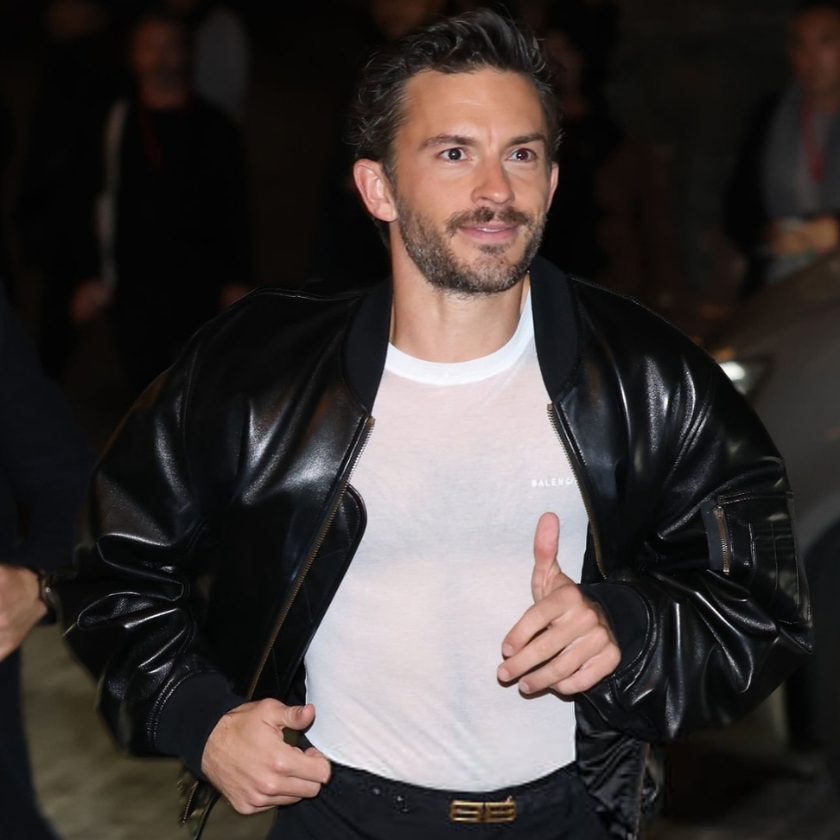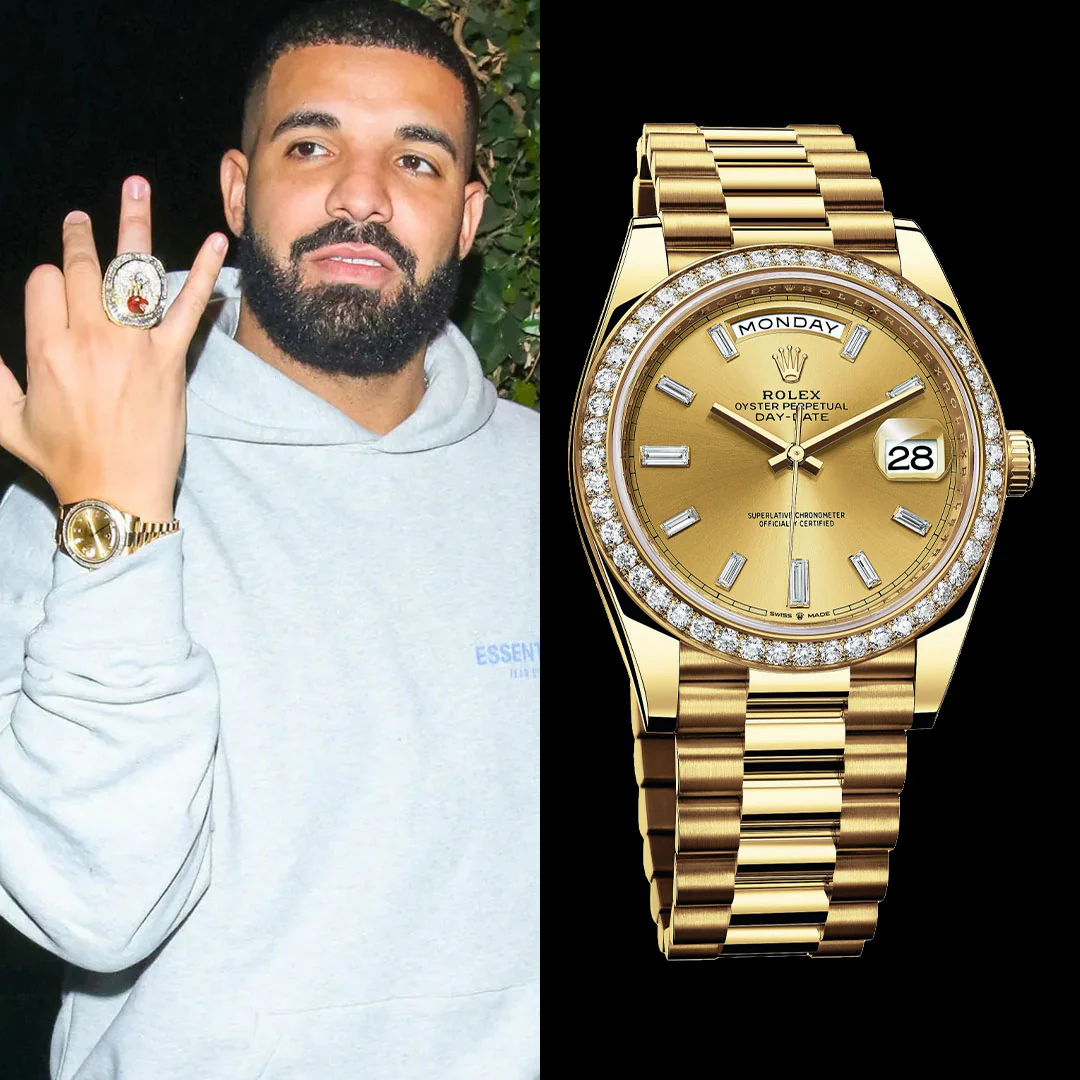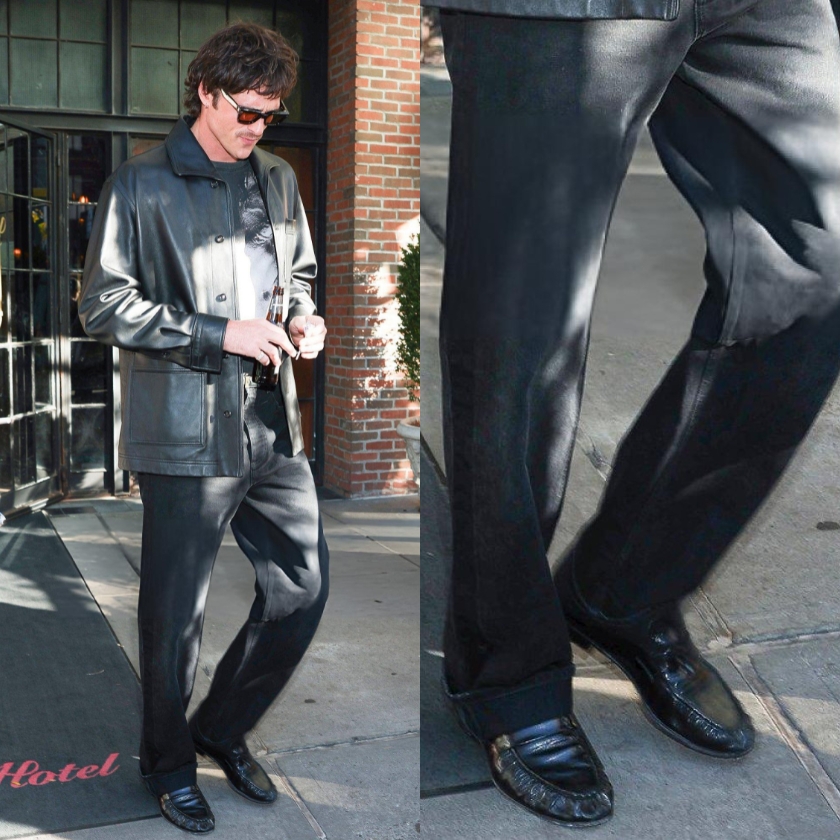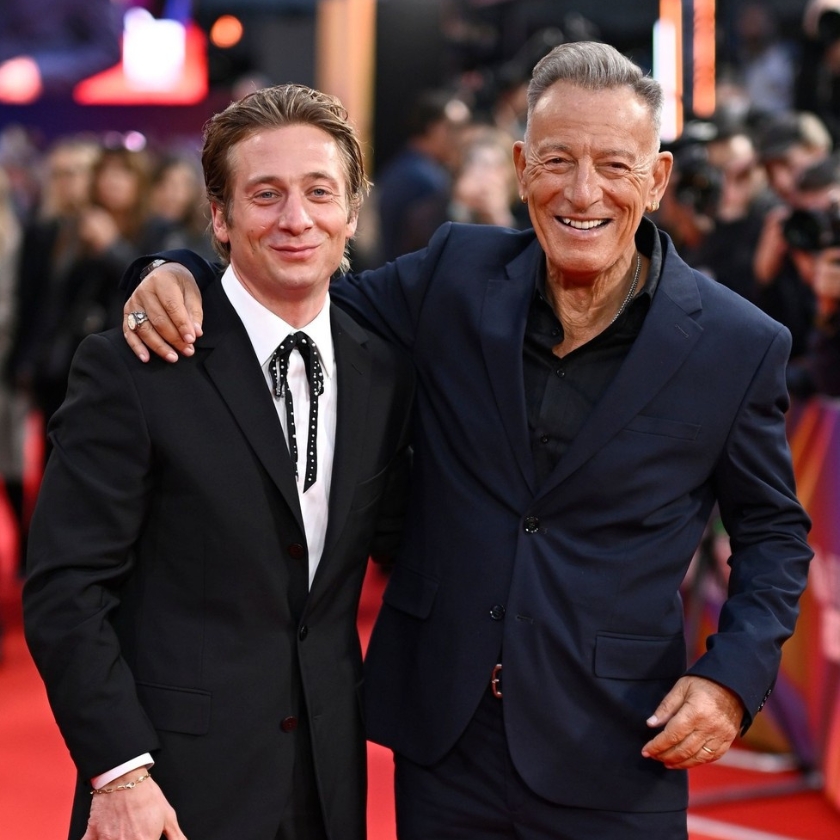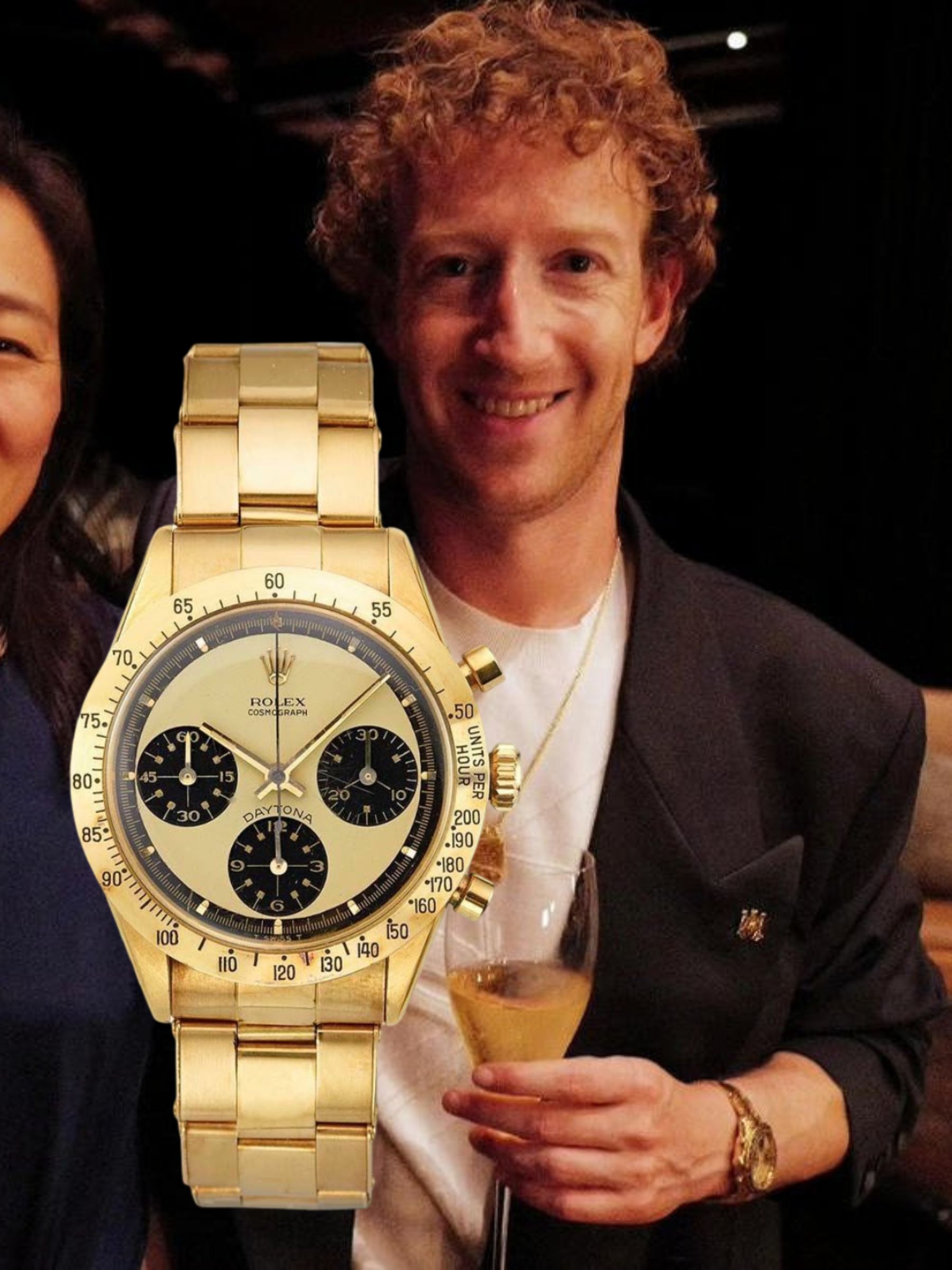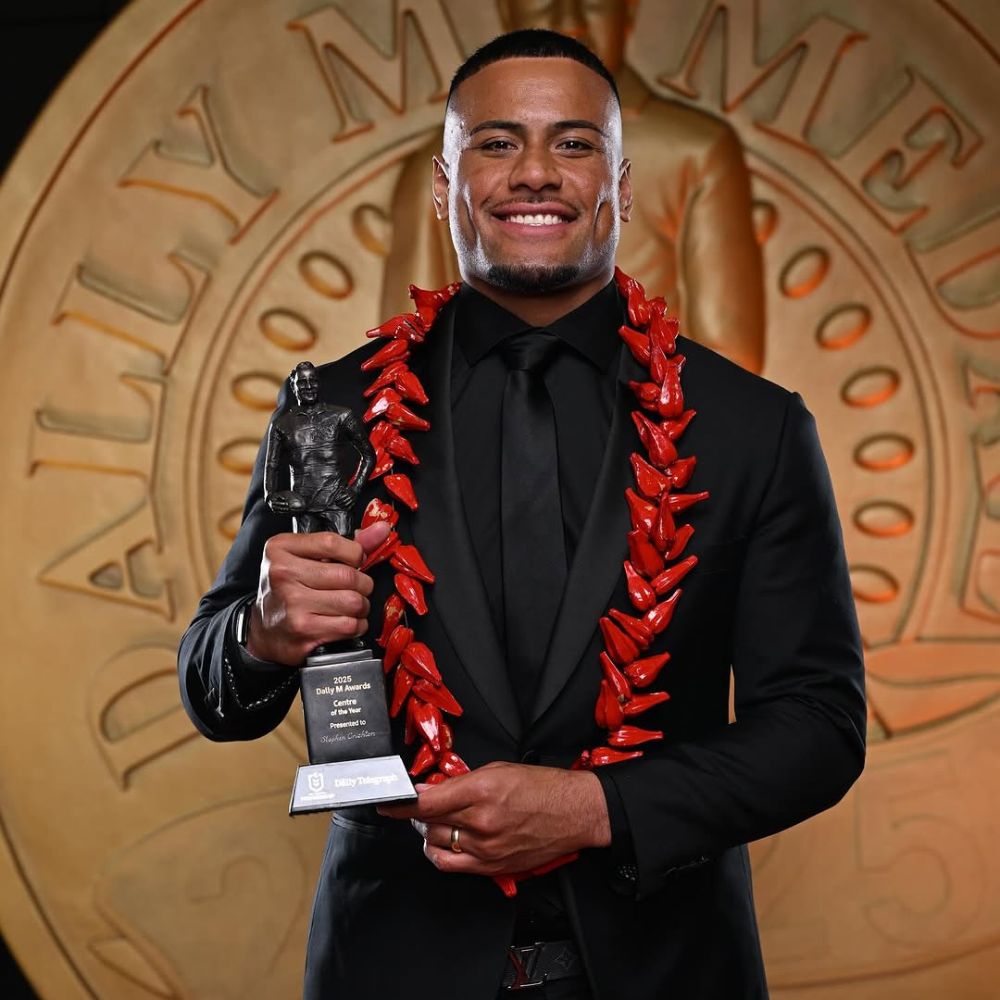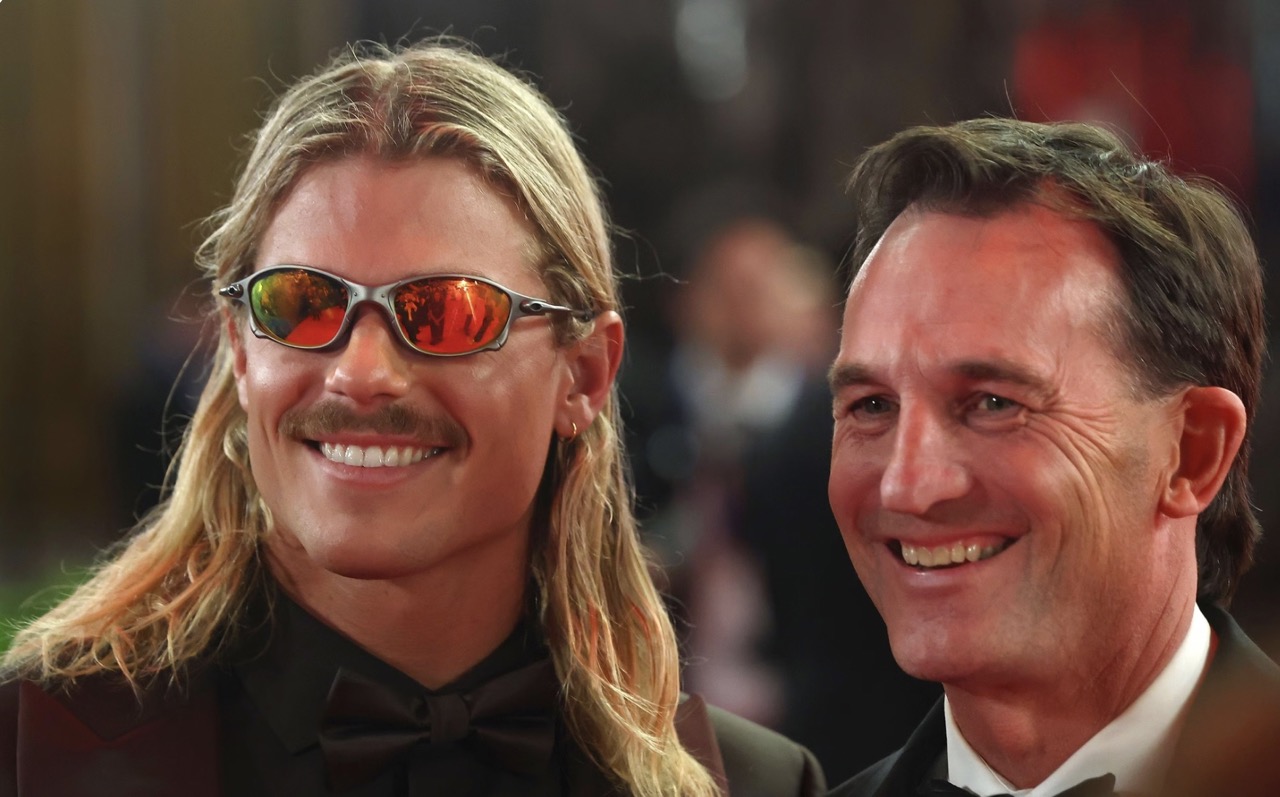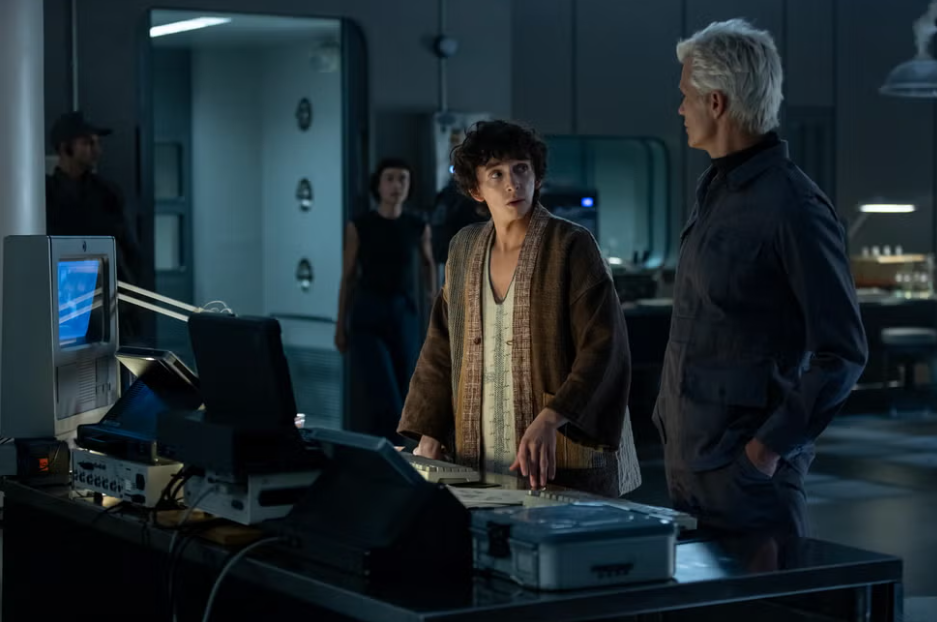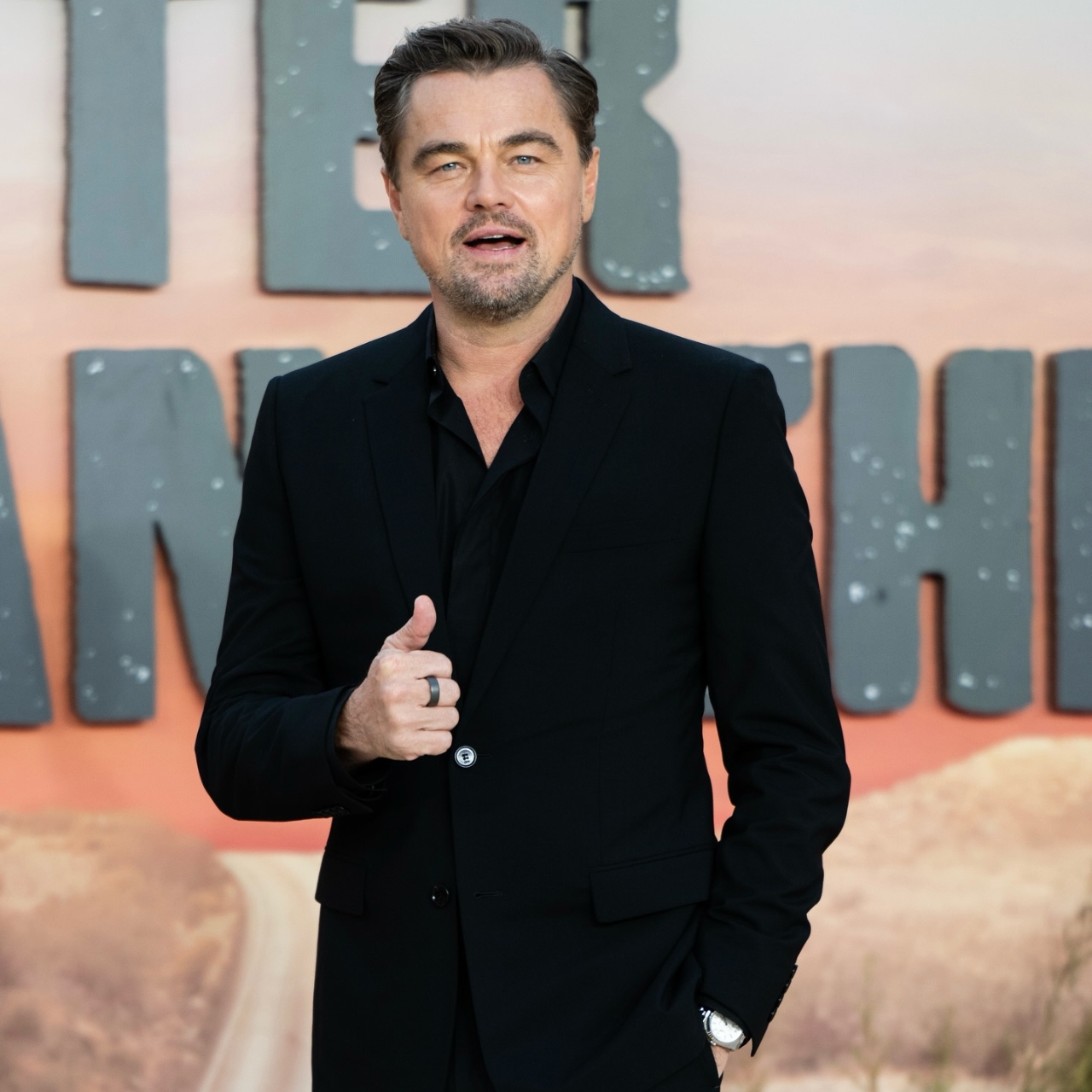Tony Hawk knows that pro skater changed everything, even himself
With a new remaster of Tony Hawk’s Pro Skater out now, the legendary athlete reflects on his past—and if we’ll see a new entry in the franchise
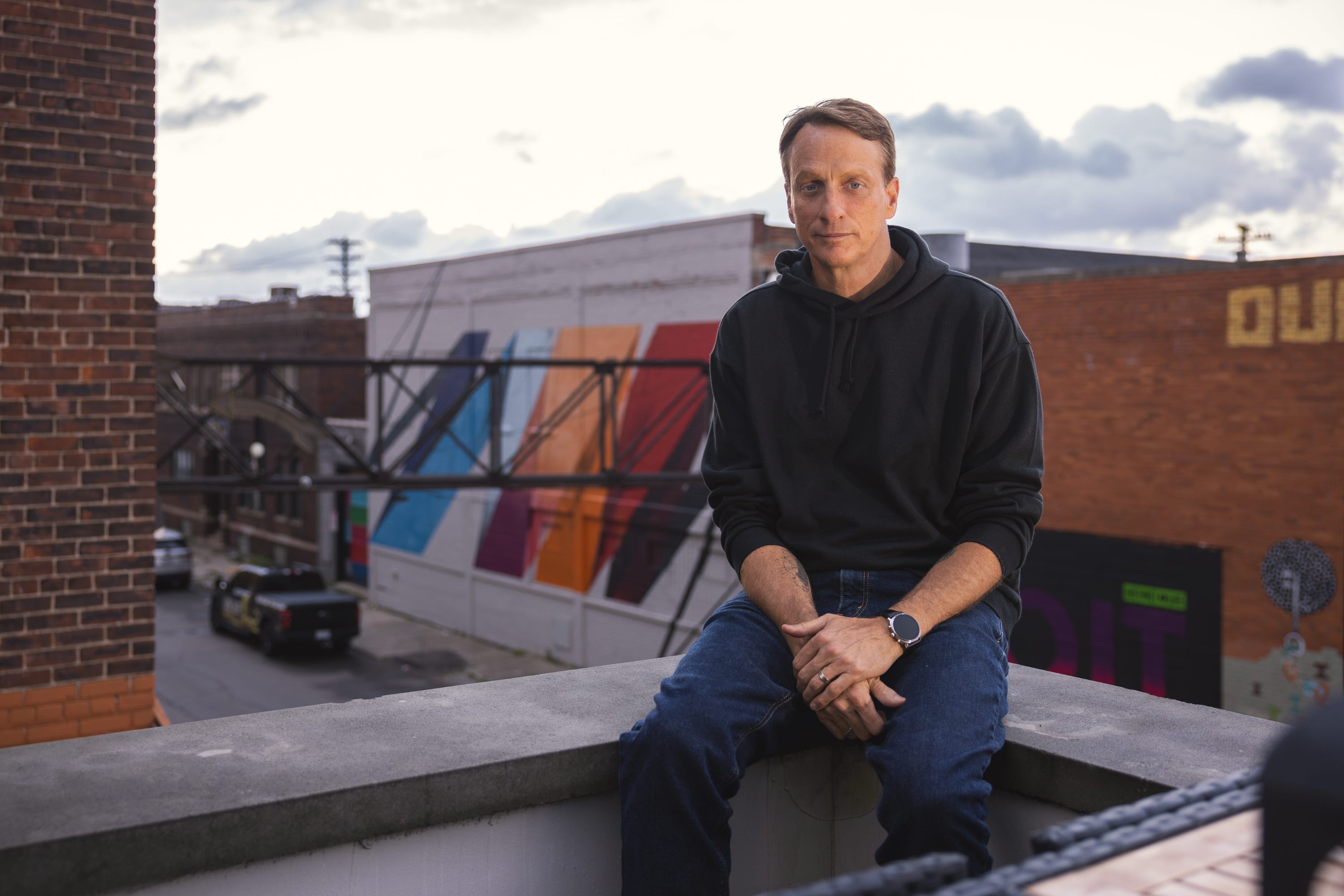
TONY HAWK DOESN’T HAVE TO PRETEND HE’S SUPERMAN. For a generation, he really was a man who could fly. At the fifth annual summer X Games on 27 June, 1999, Hawk, then 31, became the first pro skateboarder to ever land the 900 – a mythical trick involving two and a half revolutions in the air off a vertical ramp. It isn’t just the spinning that makes it brutal. It’s the midair battle between physics, timing, and years of bruises, bloodshed, and broken bones that makes the 900 an elusive benchmark. To this day, only 11 other pros have landed the 900 like Hawk did one summer night in San Diego. Even so, none have an iconic video game franchise bearing their name.
“It was not something I had planned to do that night,” Hawk, now 57, tells me about his immortal moment at X Games ’99. “The way it happened was spontaneous – and incredible timing leading up to the game. It drew a lot of attention to the game.”
Hawk was already a phenom circa ’99, but after the 900, there was no going back. A pro since age 14, he was a superstar in his sport in the way Muhammad Ali, Michael Jordan, and Tom Brady were for theirs. His history-making X Games win segued into an endless streak of appearances on Nickelodeon and MTV, where Hawk wasn’t merely a celebrity, he was royalty. But he entered a new level of fame when, on September 29, 1999, Tony Hawk’s Pro Skater debuted on the Sony PlayStation.
As swift as Hawk’s ascendancy, Pro Skater became a best-selling video game that saw skating’s underground culture, already leaking into the mainstream, fully burst into suburban living rooms everywhere. A sequel, Tony Hawk’s Pro Skater 2, was fast-tracked into development and released a year later. It sold even more copies and earned more acclaim from the gaming press, minting a new video game franchise in the process.

The series formally ended in 2010, and 2015’s widely panned Tony Hawk’s Pro Skater 5 cast doubts about a viable future for the series. But in 2020, the franchise embraced the remaster era of gaming with Tony Hawk’s Pro Skater 1+2, a ground-up remake of the first two titles. This past July, that effort continued with Tony Hawk’s Pro Skater 3+4, which similarly reimagined the original Pro Skater 3 (released in 2001) and Pro Skater 4 (from 2002) for the current generation of consoles.
In addition to redesigned levels, an updated soundtrack, and refined controls, a dozen stars from today’s skating scene, like Lizzie Armanto, Tyshawn Jones, Letícia Bufoni, and Yuto Horigome—who in 2021 became the first Olympic gold medalist in skateboarding, join their predecessors as playable skaters. Hawk says Tony Hawk’s Pro Skater 3+4 isn’t just about living in the past but celebrating where skating is now.
“There is a generation of pros in their 20s or 30s, they have told me they started skating because they played the games,” Hawk says. “It inspired them to learn tricks that are impossible in real life. Which is incredible to me and just shows the progression of skating through the years as it continues to evolve.”
In a conversation with Esquire, Tony Hawk considers the legacy of the Pro Skater games, its amazing highs and disappointing lows, and what the future looks like for both skating and gaming as one.
This interview has been edited and condensed for clarity.
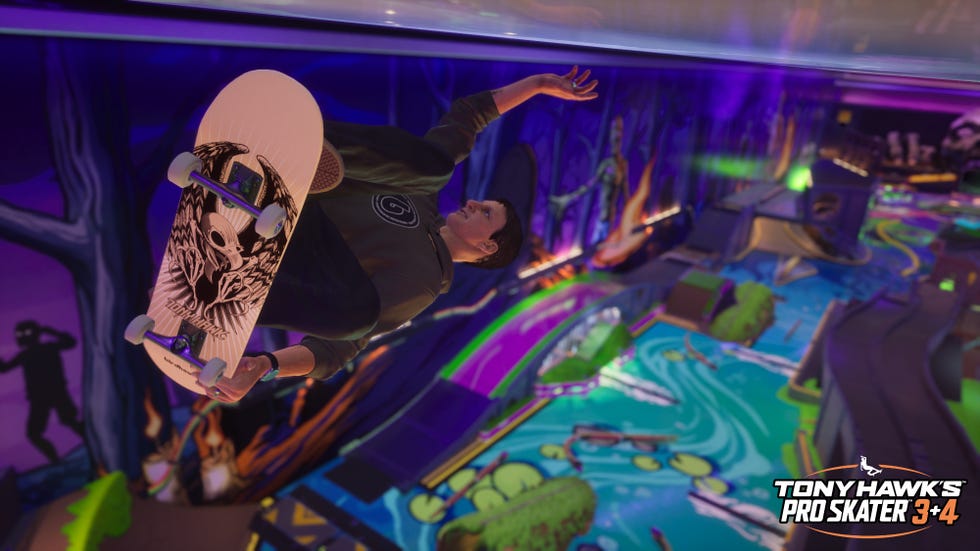
ESQUIRE: What do you, Tony Hawk, point to as proof that Tony Hawk’s Pro Skater was more to people than just a great video game series?
TONY HAWK: The proof is the fact that we are remaking the games 20-plus years later. That staying power is rare. I do think it’s helped draw attention to skateboarding for an audience that maybe hadn’t understood it or seen it before – and an incidental effect was that it helped get people into skating. That’s something I’m very proud of. It was not something I expected, nor was it the mission of the games. We never imagined it would be popular.
It changed my life for the better. That could seem selfish, but it is amazing. You can follow me around one day and see that, if I get recognised, the thing people talk about is video games.
What do you remember about the immediate impact Tony Hawk’s Pro Skater had on the wider culture? Between 1999 and the mid-2000s, especially.
There was a huge growing interest in skating, with very little support. And I mean skate parks. That’s what I saw most. All of a sudden, kids wanted to skate. And they were like, “Where do we go?” The streets, just like in the games. [Laughs.]
Take me back to September 1998, before X Games ’99. Neversoft independently began work on what would become Tony Hawk’s Pro Skater, and they approached you for input and to lend your name for credibility. What about the game’s early build impressed you enough that you agreed to be part of it?
It was the intuitive controls. I picked it up and immediately I was doing kickflips and grabs, and no one had explained the control scheme to me. It was like, Oh, this is it. I’m skating, and skating in a way I would expect on an emulation. It was initially the trick controls that got me realising, with my resources, we could make something that authentically represents skateboarding.
For me, Tony Hawk’s Pro Skater felt like fighting games that I loved, like Mortal Kombat and Marvel vs. Capcom. You’re hitting specific button inputs to chain together actions.
It’s funny you say that. When I play the game, I have my own custom button combos for all the tricks I know. As I’ve been doing all this press, every time someone hands me a random controller, I keep missing all my special tricks. Because I assign those button combos. People see me playing like, “You suck.” [Laughs.]
What doubts did you have about the games while you were making them? Were you worried the games might flop or ruin skating for everyone else?
I didn’t think of it on such a large scale. At the time we were making the game, skateboarding was not very big. So to say this could ruin it, that wasn’t even a consideration. Nothing could have ruined skateboarding. It was underground. Of course, I wanted to represent it well, and yes, it could have been exploitative and something that didn’t portray skateboarding in a positive light. But that wouldn’t have changed skateboarding’s popularity.
Neversoft, and by proxy Activision, gave us free rein. That’s probably the best thing that could have happened, because they didn’t have expectations. So we got to do [everything] authentically—the music, the skaters, the fashion. Just be like, This is skateboarding. This is what it is. If it doesn’t work, it doesn’t work. Because of Neversoft’s passion, and their drive and willingness to learn everything about skateboarding, that authenticity shines through. They didn’t have a skater on staff, but they dove in. They watched all the videos. When I would come up, they would listen to everything I said.
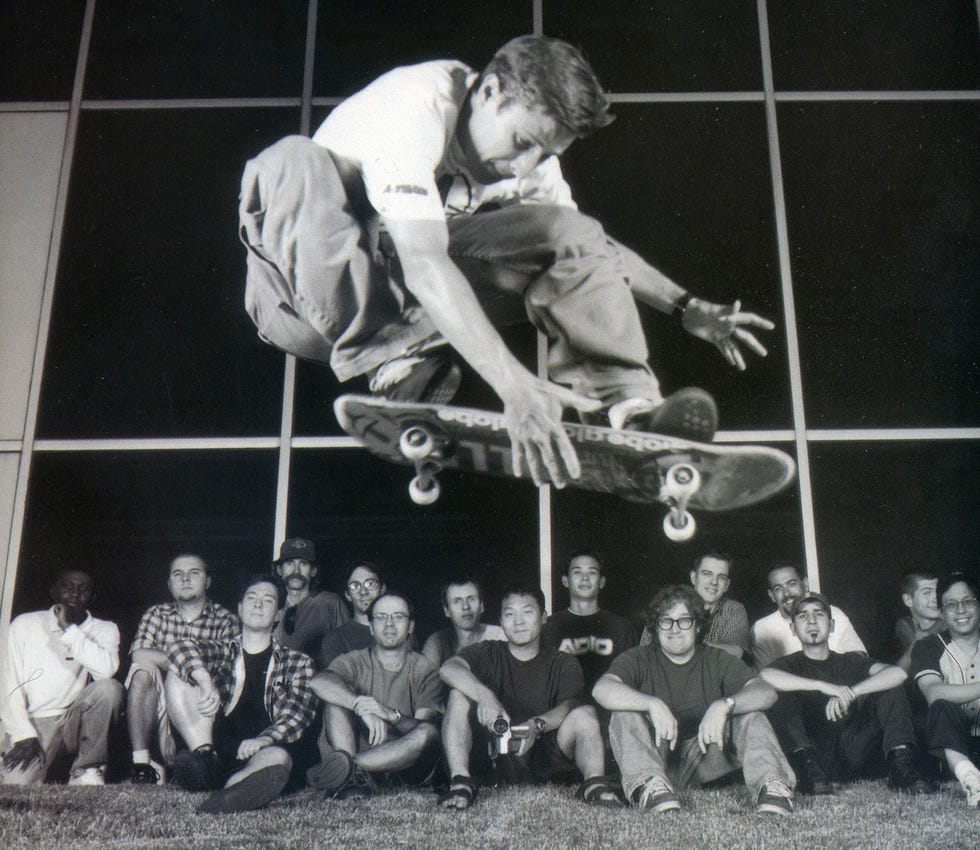
Skating has some shared philosophies with punk rock. Was there ever a concern that making a major video game meant that you were selling out?
Sure, yeah. There were a few skaters, I won’t name them, that didn’t agree to be in the first game because of that concern. And I don’t blame them. If they’re not under control, it could go awry, or it could not represent skateboarding well. Others put a lot of faith in me. By the time the second game came around, the holdouts agreed to be in it.
Plenty has been said about the soundtrack of Tony Hawk’s Pro Skater, which popularised SoCal punk rock and ska for everyone else. But of all the songs, “Superman” by Goldfinger has wound up the series’ de facto theme song. Where did you first hear that song?
I first heard it just through Goldfinger. “Here in My Bedroom,” that’s how they came on my radar in the mid-’90s. I knew that song, but I felt like we should get a deeper cut. I feel like that song is very ska-centric, you know? Representative of punk in that time. But I didn’t think it would be the breakaway hit. To be honest, that song, along with other [bands] like Millencolin or Less Than Jake and all the bands of that time frame, weren’t the most priority to me. What I wanted was to represent early punk. Dead Kennedys and Primus. That’s the stuff closer to my heart. That’s not to say I was dismissive of Goldfinger, I love it, but it just didn’t seem to me that was the one that was going to be the hit.
The year 1999 feels like a flash point. At the X Games in June, you land the 900. Later in September, Tony Hawk’s Pro Skater hits shelves. Were the games responsible for the skating boom, or was the skating boom responsible for Tony Hawk’s Pro Skater?
There was a perfect storm. A rising tide of interest in skating. X Games are starting to come into the mainstream. In ’97, ’98, we saw a rise of interest. When the game got released, that got a lot more people interested in skating. That was a sudden tipping point. By the time 2000 and 2001 came, skateboarding was on the map. It was something kids were actively choosing to do as easily as they would choose to do baseball or football.
Because of the games, you became a major celebrity for kids. You had cartoon cameos and got slimed on Nickelodeon a lot. How did it feel to be a role model for children at that time?
In other sports, especially mainstream sports, if kids start to do it, they know there’s a possibility they could become rich and famous. That was never in the cards for skateboarding when I started. It was never a goal, because no one did it. Even the best skaters, all they could hope for was free equipment until they reached an age of responsibility and got a job. When I got a taste of that [fame], it was pretty uncomfortable. It wasn’t something I was going to embrace right away. I didn’t even know what to do with it. I figured it out later, like, “With great power comes great responsibility,” and I was able to redirect attention to the need for public skate parks in underserved areas and to foster other skaters coming up. It’s been fun – it’s just never something I would have dreamt or expected. It’s still weird, to be honest.
This is a question ten-year-old me has wanted to ask. For a few years at the X Games, you and Andy MacDonald won gold medals as a duo in vert doubles. But Andy MacDonald has never been in the games. What has been the reason for his exclusion from all of Tony Hawk’s Pro Skater?
He got his own deal. [Writer’s note: In 1999, Andy MacDonald was featured in the video game MTV Sports: Skateboarding featuring Andy MacDonald.] That timing excluded him from the games. But it’s funny you asked that. I have put that forth recently. Like, we should get Andy in the game as a secret or downloadable character. That’s TBD, but it’d be cool.
The final Tony Hawk game made by Neversoft was Tony Hawk’s Proving Ground in 2007. What are your feelings about the final years of the franchise, which included Tony Hawk’s Project 8, Proving Ground, and Ride? Do you wish those games fared better?
I would say Project 8 and Proving Ground were still exemplary of Neversoft’s devotion to skating and just trying to mix it up. We have plenty of features in there that weren’t in the previous games, and we were utilising new architecture. I feel like those games do hold up.
When we got into Ride, that was rushed. The irony of that was that we were in the peripheral phase of gaming, with Guitar Hero and Rock Band. I wanted to get into that and make it truly subversive. But when the game came out, it wasn’t ready in terms of the synergy with the technology. The second one that came out was the game I’d envisioned, Shred. By the time Shred came out, the peripheral phase was gone. So there was a bit of right place, wrong time. People still point to Downhill Jam as one of their favourite games on the Wii. It was one of the first motion-controlled games on the Wii, so that was amazing.
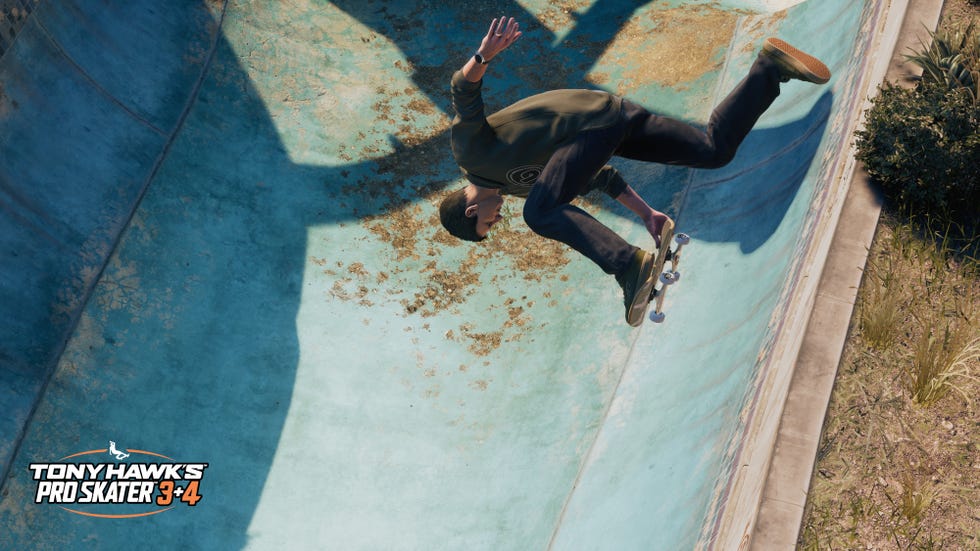
What’s next after Tony Hawk’s Pro Skater 3&4? Are you looking to remaster Tony Hawk’s Underground next? That game has a massive cult following.
You’re not the only person to say that. I hear it a lot. People saying, “So Underground‘s next, right?” I don’t know. It depends on how well this is received and if Activision decides to continue. But obviously, those are the next games in the chronology.
What about a new game in the series? Is there a chance for Tony Hawk’s Pro Skater 6?
That would be a group decision. I can’t answer that right now. Ask me in a few months or a year. [Laughs.]
What do you think the relationship between skating and gaming is in 2025? How might gaming contribute to skateboarding as it did in the early 2000s?
Internationally, to gamers who maybe don’t know anything about skating, this could be their entry point, which it was for kids in the 2000s. I feel like gaming itself has grown so exponentially, this could be someone’s first time ever seeing skateboarding in a different country. I feel like we’re celebrating how far skating has come with this game. We’ve updated it with newer skaters and new maps. We’re not stuck in the past. It has been updated, and it does represent skateboarding authentically, what it is right now. And we will do that, if we get to keep doing it.
This story originally appeared on Esquire UK
Related:












